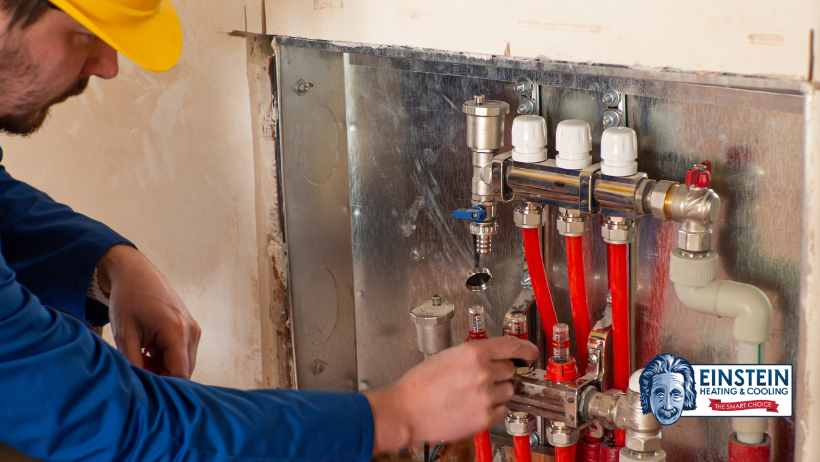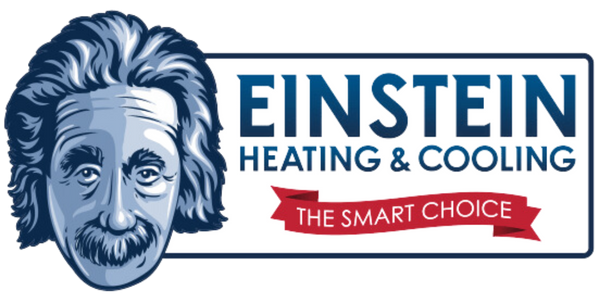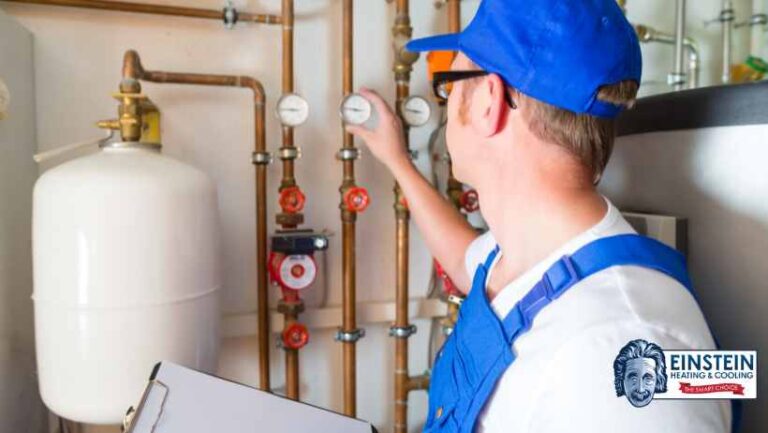Finding “heating installation near me” is important during the cold winter months. With so many options available, making an informed decision is crucial to ensure maximum comfort and energy efficiency. Before settling on a specific heating system, let us discuss its different types and tips on choosing the best heating system and heating installation near me in Madras, Oregon.
Types of heating systems
1. Central Heating Systems
Central heating systems are among the most popular choices for keeping homes warm. They work by distributing heat from a single source throughout the entire building. There are several types of central heating systems, each with its own unique characteristics:
1.1 Furnaces
Furnaces are a common component of central heating systems. They operate by heating air and then distributing it throughout the house via a network of ducts. Key features of furnaces include:
- Efficient heating: Furnaces can provide quick and efficient heating, making them a popular choice.
- Fuel options: Furnaces can be powered by various fuels, including natural gas, oil, and electricity.
- Ductwork required: Installation typically requires ductwork to distribute the heated air.
1.2 Heat Pumps
Heat pumps are an energy-efficient heating option that can also provide cooling during the summer months. They work by transferring heat from the outdoors to the interior of a building. Notable characteristics of heat pumps include:
- Energy efficiency: Heat pumps are highly efficient and can provide both heating and cooling functions.
- Electrically powered: Most heat pumps operate on electricity, making them eco-friendly.
- Suitable for moderate climates: Heat pumps are ideal for regions with mild winters.
2. Radiant Heating Systems
Radiant heating systems work by warming the objects and surfaces in a room, which in turn radiate heat to the surroundings. They are particularly beneficial in reducing heat loss and creating a cozy indoor environment. There are two primary types of radiant heating systems:
2.1 Hydronic Radiant Heating
Hydronic radiant heating systems utilize hot water circulated through pipes or tubes to heat the floor, walls, or ceilings. Key points to consider for hydronic radiant heating include:
- Even heat distribution: This system offers consistent heating, with minimal temperature fluctuations.
- Energy efficiency: Hydronic systems are energy-efficient and can be powered by various energy sources.
- Installation complexity: Installation can be more involved, as it requires running pipes throughout the building structure.
2.2 Electric Radiant Heating
Electric radiant heating systems employ electrical cables or mats installed beneath the floor, providing direct warmth to the space. Factors to note regarding electric radiant heating include:
- Quick response time: Electric systems heat up rapidly, providing immediate warmth.
- Simplicity of installation: Electric radiant heating systems are easier to install compared to hydronic systems.
- Higher operating costs: Electric heating can be more expensive to operate than some other systems.
3. Ductless Mini-Split Systems
Ductless mini-split systems are versatile and energy-efficient heating and cooling options for both residential and commercial spaces. These systems consist of an outdoor unit and one or more indoor air-handling units. The advantages of ductless mini-split systems include:
- Zoning capabilities: Each indoor unit can be controlled separately, allowing for customized heating and cooling in different areas of the building.
- Energy efficiency: Ductless mini-split systems are highly energy-efficient and provide both heating and cooling functions.
- Installation flexibility: Since they do not require ductwork, installation is more straightforward in both new and existing buildings.
4. Radiators
Radiators have been a traditional heating solution for many years. They work by heating water or steam, which then radiates heat into a room. Radiators are still a viable choice for many homeowners due to the following factors:
- Durability: Radiators are known for their longevity and reliability.
- Versatility: They can be used for both residential and commercial heating applications.
- Modern designs: Contemporary radiators come in various styles, enhancing their aesthetic appeal.
5. Wood-Burning Stoves
Wood-burning stoves have been a source of heating and a focal point in many homes for centuries. They burn wood logs to produce heat and create a cozy ambiance. Here are some key aspects of wood-burning stoves:
- Independence from fuel sources: Wood-burning stoves are self-reliant and can be used even when other fuel sources are unavailable.
- Eco-friendliness: When used with dry, well-seasoned wood, they are a relatively eco-friendly heating option.
- Regular maintenance: Wood-burning stoves require maintenance, including chimney cleaning and ash removal.
6. Pellet Stoves
Pellet stoves are a more modern alternative to wood-burning stoves. They use small, compressed wood pellets as fuel, offering a convenient and efficient heating solution. Notable features of pellet stoves include:
- Automated operation: Pellet stoves have automated feed systems that regulate the fuel supply, making them user-friendly.
- High efficiency: They produce minimal ash and emissions while providing consistent heat.
- Fuel availability: Pellets are widely available, and their production is considered sustainable.
7. Gas-Based Heating Systems
Natural gas and propane are common sources of fuel for various heating systems. These systems are widely used in many homes and businesses due to their efficiency and convenience. Types of gas-based heating systems include:
7.1 Gas Furnaces
Gas furnaces are similar to their electric counterparts but are powered by natural gas or propane. Key characteristics of gas furnaces include:
- Efficient heating: Gas furnaces are known for their high heating efficiency.
- Lower operational costs: Natural gas is often more cost-effective than electricity for heating.
- Carbon monoxide risk: Proper maintenance and ventilation are essential to mitigate safety concerns.

7.2 Gas Fireplaces
Gas fireplaces provide a convenient and clean-burning alternative to traditional wood-burning fireplaces. They are available in various styles, including insert and built-in units. Consider the following when choosing a gas fireplace:
- Efficiency and convenience: Gas fireplaces offer quick and convenient heating and create a cozy ambiance.
- Venting options: Some models can be vented through a chimney, while others use direct venting or ventless technology.
- Flame realism: Modern gas fireplaces feature realistic flame patterns and are highly controllable.
8. Solar Heating Systems
Solar heating systems harness the power of the sun to provide heating for residential and commercial spaces. They are eco-friendly and can significantly reduce energy costs. Factors to consider with solar heating systems include:
- Solar collectors: These systems require the installation of solar collectors on the roof or walls to capture sunlight.
- Backup systems: Solar heating systems often have backup heating methods for periods of limited sunlight.
- Long-term cost savings: Although the initial investment can be high, solar heating systems can lead to substantial long-term savings.
9. Geothermal Heating Systems
Geothermal heating systems tap into the stable temperature of the Earth to provide heating and cooling. They are highly energy-efficient and environmentally friendly. When considering geothermal heating, think about:
- Ground loops: These systems utilize underground pipes to exchange heat with the Earth.
- Consistent heating and cooling: Geothermal systems offer stable temperature control year-round.
- Installation complexity: The installation can be more intricate and require specialized equipment.
10. Electric Baseboard Heaters
Electric baseboard heaters are individual heating units installed along the baseboard of a room. They are controlled by a thermostat and are known for their simplicity. Key considerations for electric baseboard heaters include:
- Zonal heating: Each room or area can be independently heated, allowing for precise temperature control.
- Silent operation: Electric baseboard heaters operate quietly, without the noise associated with forced-air systems.
- Energy costs: Electricity costs can be relatively high, so energy efficiency measures are essential.
Factors to Consider When Choosing a Heating System
Now, let’s explore each of the 5 crucial factors in detail:
1. Heating Needs
- To determine your heating needs, consider factors like the size of your home, the local climate, and your preferred indoor temperature. If you need heating system service in Madras, make sure to check your heating needs in your residence or business spaces. Larger homes or areas with harsh winters may require more powerful heating systems.
2. Energy Efficiency
- Energy efficiency is a key consideration to reduce long-term energy costs and environmental impact. Look for a heating system with a high energy efficiency rating, such as the Annual Fuel Utilization Efficiency (AFUE) for furnaces or the Heating Seasonal Performance Factor (HSPF) for heat pumps.
3. Fuel Type
- The choice of fuel type can significantly impact your heating system. Consider which fuel source is readily available and cost-effective in your area. Common options include natural gas, propane, electricity, and oil.
4. System Cost
- Compare the initial installation cost, as well as long-term operational costs. Factors to include in your cost analysis are purchase price, installation costs, maintenance, and energy expenses.
5. Maintenance Requirements
- Different heating systems have varying maintenance needs. For example, boilers and furnaces may require more frequent maintenance compared to heat pumps. Consider your willingness and ability to meet these requirements.
Choosing a Heating Installation Near Me
Einstein Heating and Cooling offers a wide range of heating installation near me in Madras, Oregon:
1. Furnace Installation
- Furnaces are a popular choice for heating homes in Madras due to their efficiency and reliability. Our expert technicians specialize in the installation of high-efficiency furnaces that provide consistent warmth and substantial energy savings.
- We guide you through the process of selecting the right furnace for your home and provide professional installation to ensure it operates optimally.
2. Heat Pump Installation
- Heat pumps are versatile systems that can both heat and cool your living spaces. Our skilled technicians are well-versed in heat pump installations, helping you achieve year-round comfort while maximizing energy efficiency.
- We consider the specific requirements of your property and recommend the right heat pump system for your needs. Whether it’s an air-source or ground-source heat pump, we have you covered.
3. Ductless Mini-Split Installation
- If your home lacks a traditional ductwork system, ductless mini-split installations are the ideal solution. These systems offer zoned heating, providing precise control over the temperature in different areas of your home.
Our technicians are experienced in installing ductless mini-split systems, ensuring that your home is comfortable and energy-efficient. We guide you through the selection process, explaining the options available to you.
4. Boiler Installation
- Boilers are known for their reliability and consistent hot water supply, making them a popular choice for heating homes and providing domestic hot water. Our boiler installation services are carried out with precision, ensuring efficient and reliable hot water and heating.
- We assess your property’s heating needs and recommend the right boiler system to match your requirements, whether it’s a conventional boiler or a modern condensing unit.
5. Thermostat Upgrades
- A modern thermostat can significantly enhance the functionality of your heating system. Our thermostat upgrade services allow you to take control of your indoor environment more effectively.
- We install smart thermostats that enable you to remotely manage your heating system, create energy-efficient schedules, and monitor your home’s temperature and humidity levels from your mobile device.
6. Radiant Floor Heating Installation
- Radiant floor heating is a luxurious and efficient way to keep your home warm. Our installation experts are skilled in setting up radiant floor heating systems that provide even and consistent warmth throughout your living spaces.
We work with you to determine the most suitable type of radiant floor heating, whether it’s hydronic or electric, based on your preferences and your property’s structure.
7. Hybrid Heating System Installation
- Hybrid heating systems combine the benefits of both gas and electric heating, offering a versatile and energy-efficient solution. Our skilled technicians are knowledgeable in setting up hybrid systems that are tailored to your specific needs.
We help you choose the right combination of heating technologies, ensuring that you have a reliable heating source that minimizes energy consumption and lowers your utility bills.
8. Geothermal Heating Installation
- Geothermal heating harnesses the Earth’s stable temperature to provide efficient and eco-friendly heating. Our geothermal heating solutions are designed to take advantage of Madras’ unique geology and climate.
We conduct a thorough assessment of your property to determine if geothermal heating is a viable option and guide you through the installation process, which involves drilling wells and installing a ground-source heat pump.
In Conclusion
Selecting the right heating system and heating service in Madras for your home is a decision that can significantly impact your comfort and energy expenses. If you’re in search of “heating installation near me,” it’s essential to consult with local heating professionals like Einstein Heating and Cooling to assess your unique requirements and find the most suitable heating system for your needs. We can provide guidance, perform installations, and offer ongoing maintenance to keep your heating system running efficiently for years to come.








